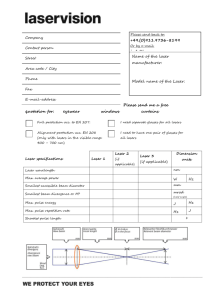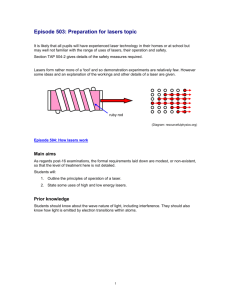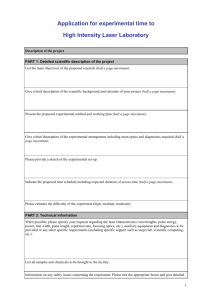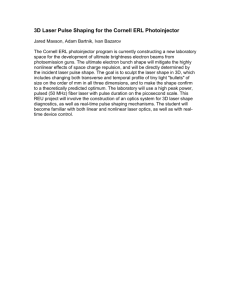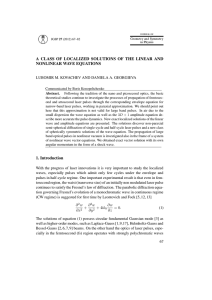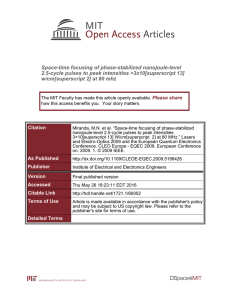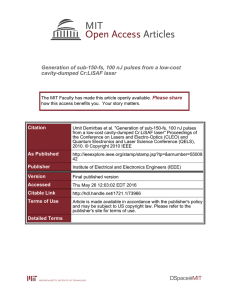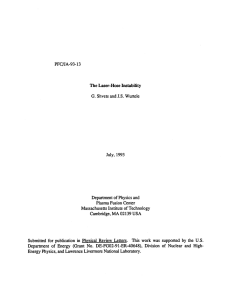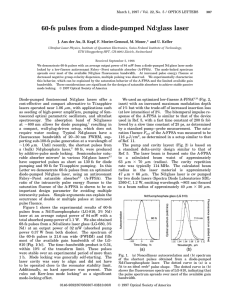Light Instability of QC Lasers
advertisement
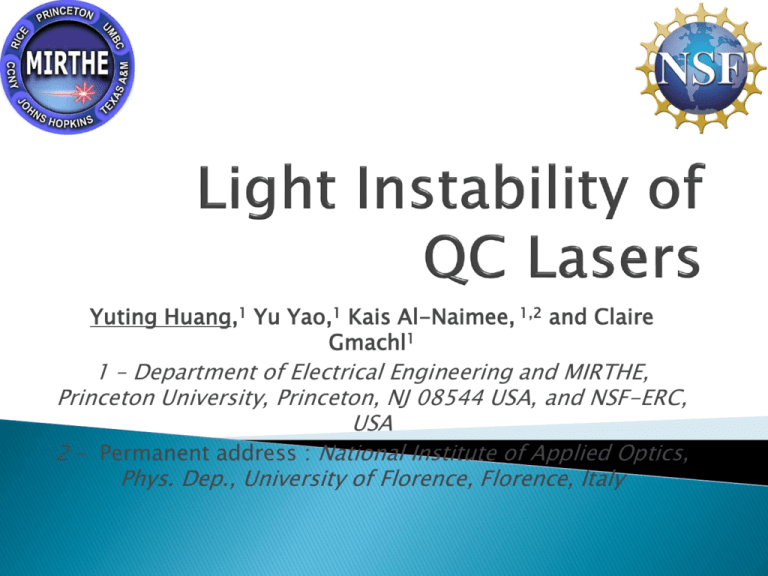
Yuting Huang,1 Yu Yao,1 Kais Al-Naimee, 1,2 and Claire Gmachl1 1 – Department of Electrical Engineering and MIRTHE, Princeton University, Princeton, NJ 08544 USA, and NSF-ERC, USA 2 – Permanent address : National Institute of Applied Optics, Phys. Dep., University of Florence, Florence, Italy Why Investigate Light Instability? Power Instability has long been a known problem in traditional lasers but not in high profile QC lasers. 1 Finding potential quasi-period behaviors of light instability can help make much more powerful lasers by stabilizing them on the higher power state. . Fig 1. Zooming in on 7 sequential light pulses out of 5000 pulses in P2 Laser3. Fig 2 shows around 100 light pulses at I = 0.7 A, the current for stable light output. Fig 3 shows around 160 light pulses at I = 2.4 A, the current for extremely unstable light output. 1. K.J. Franz, J.J.J. Raftery, P.Q. Liu, A.J. Hoffman, M.D. Escarra, S.S. Howard, Y. Dikmelik, J.B. Khurgin, X. Wang, J.-Y. Fan, C. Gmachl "Negative Differential Resistance and Pulse Instabilities in Minimalized Quantum Cascade Laser Structures," Conference on Lasers and Electro-Optics (CLEO), Baltimore, MD, June 2009.. • (The figure above) Easy-to-use Matlab interface monitors up to 5,000 sequential pulses • plots light output instability in the gate regions. • In the right figure a laser holder is shown. The laser is opposite to a light detector, a voltage generator, an oscilloscope and the computer. • We choose the region of instability on each pulse as the gate region. • (In the above figure) Gate region is between the red lines. • (In the right figure) Data calculated by averaging the light power output in the gate region on each pulse may reveal the light instability pattern hidden in QC laser. Conclusion We succeeded in developing a real time, pulse by pulse measurement system that allows monitoring laser dynamics and chaos.


